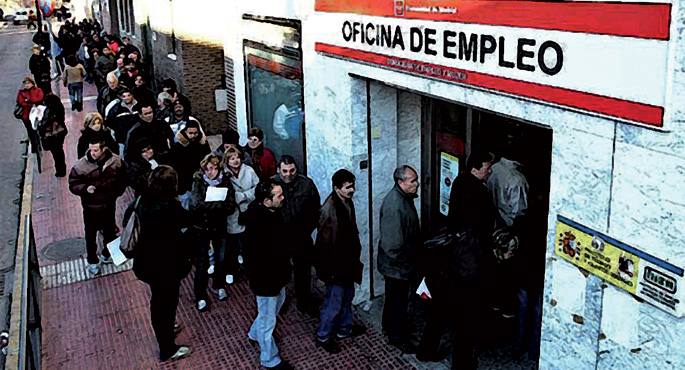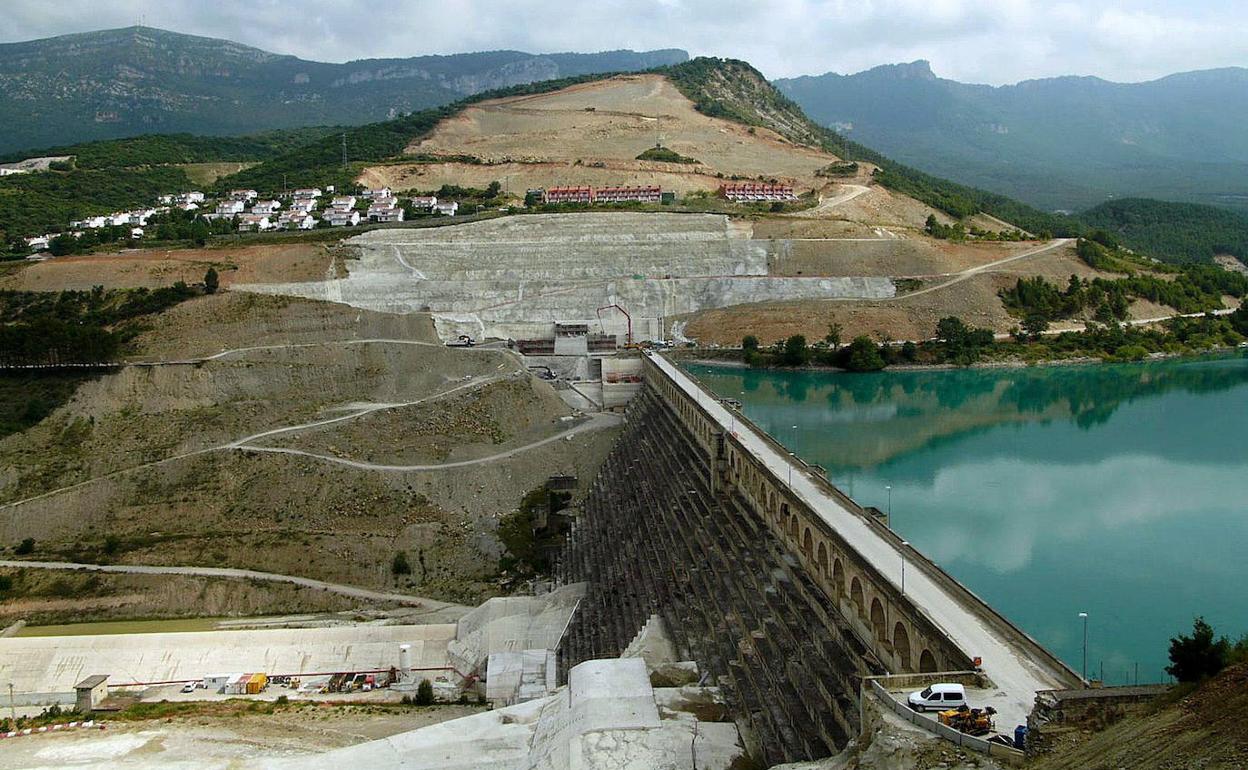What does the reality of labour markets show?
- Text There are alternatives. Proposals to create jobs and social welfare in Spain. This is a subsection of Chapter IV which deals with the conditions for job creation and stresses that the doctrine of neo-liberalism on employment is inadequate.

[The three authors are recognized economists in Spain and there are alternatives, which in 2011 has had a great impact on the State. Proposals to create jobs and social welfare in Spain. (There are alternatives. They published proposals to create jobs and social welfare in Spain)]
If we leave aside the ideological mechanisms of the eyes that encourage the neoliberals to consider the labour market as a perfect and utopian mechanism that, with the mere fact of guaranteeing relatively low wages, generates an unlimited number of jobs, and conversely, if we look at reality without prejudice what really happens in these markets, we find the fundamental keys that must be taken into account in order to promote the creation of jobs.
In this sense, the most relevant teachings do not come from neoliberal ideologies, but from an analysis of the real functioning of the labor markets. The first thing it teaches is that the way to create jobs is not to further liberalise markets and labour relations. It is not true that where reforms have been carried out to deregulate and make the labour markets more flexible, more jobs have been created and unemployment has been reduced further.
The second fundamental lesson is that, while it could be demonstrated that certain rules and institutions that protect workers and, logically, increase labour costs can generate greater rigidity, their impact on employment cannot be considered determinant, along with the macroeconomic variables that are always present, and whose influence has been demonstrated in recent studies.
Concerning third education, labour reforms have led to a reduction in labour costs, a reduction in standards of protection of labour standards and an increase in job insecurity, which increases temporary employment and reduced working hours without demand, job discrimination, insecurity and dissatisfaction.
Fourthly, if we have sufficient evidence that job creation is constrained by adequate macroeconomic conditions, it not only affects the growth of activities measured through GDP. And it has been clear without any problem that in recent years there have been clearly negative situations and policies for job creation.
Among others:
1. The privilege of financial incomes: they have taken over the resources of productive activity and removed the resources needed for productive enterprises to be able to create jobs. The problem has been particularly burdened during the crisis because, as we know, funding has been cut dramatically and businesses cannot create jobs.
2. The preponderance of deflationary policies: they are aimed at reducing wages and expenses, on the pretext that they generate inflation, which has led to a constant reduction in effective demand for small and medium-sized enterprises.
3. Reducing social spending: avoiding job creation in welfare services.
4. The power of large companies in the market has increased, being able to apply uncompetitive prices and costs that harm small and medium-sized enterprises that generate more jobs.
Fifthly, the analysis of job creation and destruction indicates that both depend on working time management and on the distribution of productivity gains, i.e. the distribution of income between labour and capital. This means that we can avoid the destruction of jobs and encourage job creation by reducing working time and vice versa. The more serious the crisis is, the more the working day increases, as in Spain, the more jobs will be lost. If working time is reduced, as in Germany, employment is maintained.
Finally, the increase or reduction in the volume of employment also depends on the production model, the priority resource destinations and the income distribution model. In short, the levels of employment and unemployment in an economy depend not only on the economic situation, but also on the political situation. And as a result, they depend on the power and influence of social groups in decision-making on the use of resources.
That is why politicians and economists who are committed to distributing income in favour of associations of the elderly and of capital always oppose trade unions, who are seeking to reduce their bargaining space, to prevent collective bargaining, to be carried out individually or as centrally as possible, to make work for workers weaker and, in general, to put an end to the mandatory rules establishing undisputed rights.
That is why they are calling for the macro-economic policies we have mentioned to be implemented. In fact, it is known that they will create unemployment, because the higher the unemployment, the easier it will be to establish the working and wage conditions that suit the elderly.
This does not, of course, mean that all entrepreneurs and companies act with that limited approach (when a few try to win, in the end, all entrepreneurs lose). Many entrepreneurs seek to innovate, agree with the workers on the distribution of productive benefits, without impoverishing anyone or jeopardizing the future of the company; promote participation and working conditions for all; help to avoid exclusion and imbalance; understand that profit-making must necessarily be compatible with respect for the environment, social justice and collective interests; and know that the success of a company is based not only on the maximum amount of work but on the maximum amount of work.
Job creation therefore involves promoting such entrepreneurial behaviour and ownership models for the benefit of small and medium-sized enterprises, social and cooperative enterprises and labour companies, creating the conditions for this form of understanding of business not to be an obstacle to business, but an advantage. In fact, some of the most efficient companies that have responded to the crisis with the least jobs lost have been worker cooperatives with a 3/1 wage gap between the highest and lowest wages. On the contrary, large Ibex-35 companies destroy more jobs and the wage gap can be 20/1. Mondragon is an example of this, and it can be said that if most Spanish companies had behaved like Mondragon’s, our level of unemployment would have been much lower than the current one.
On the other hand, it is important to recover a very widespread principle in the countries of northern Europe, where progressive forces have been dominating political institutions: the responsibility for creating jobs lies with the State, when private companies do not generate enough. This is a principle of great significance in times of crisis, as at this time (contrary to what is being done in Spain) the State should have even greater commitment in the configuration of jobs.
Andrea Velasko dietista eta nutrizionistak elikaduraren bidez menopausiak eragindako aldaketak kudeatzeko zenbait gako eman ditu.
BRN + Auzoko eta Sain mendi + Odei + Monsieur le crepe eta Muxker
Zer: Uzta jaia.
Noiz: maiatzaren 2an.
Non: Bilborock aretoan.
---------------------------------------------------------
Ereindako haziek ura, argia eta denbora behar dute ernaltzeko. Naturak berezko ditu... [+]
Antonio Turiel fisikari eta CSICeko ikerlariak aspaldiko urteetan ez bezala bete zuen Hernaniko Florida auzoko San Jose Langilearen eliza asteazkenean. Zientoka lagun elkartu ziren Urumeako Mendiak Bizirik taldeak antolatuta Trantsizio energetikoaren mugak izeneko bere hitzaldia... [+]





















